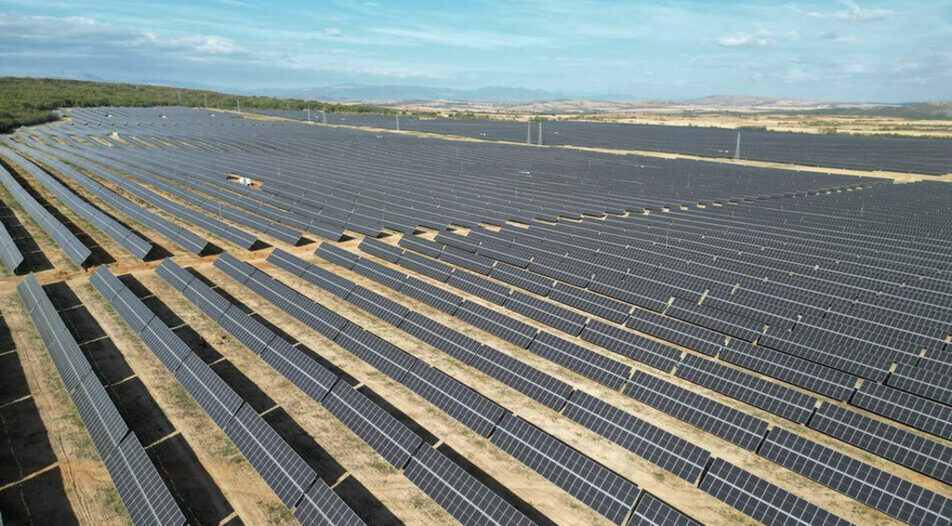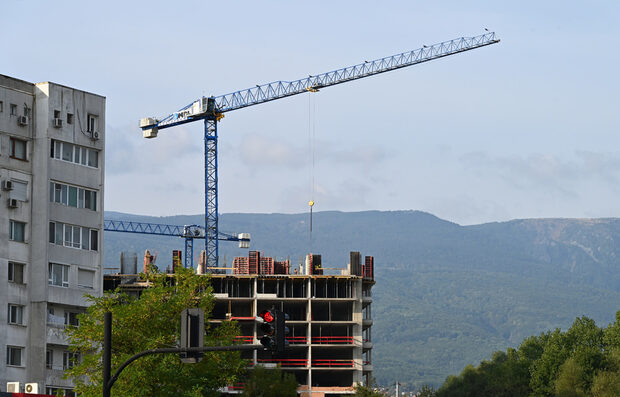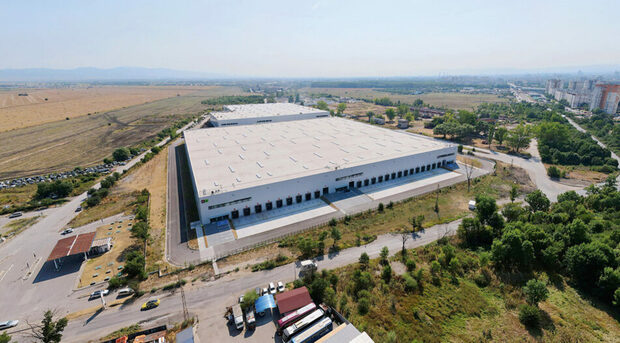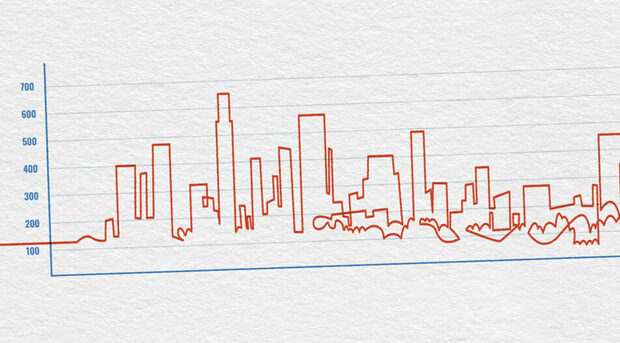- Residents of the villages of Sbor and Apriltsi in the Pazardzhik region allege that their lands have been seized by a company owned by Ginka Varbakova which is constructing a solar park on them.
- The company acquired the land through prescription, which is a legal opportunity, yet the majority of owners were unaware of this process.
- Over 20 complaints have been lodged with the regional prosecutor's office, but as of now no action has been taken, while settlements are being made with some of the affected people.
In the spring of 2023, Momchil Momchilov purchased agricultural land near the village of Sbor, in Pazardzhik region. Three to four months later, he was informed by a letter from the Cadastre Service that his property had a new owner - the Real States company, owned by Ginka Varbakova, which had been constructing the largest solar park in the area for several years. Varbakova became well-known for her intentions to buy the country's largest power distribution company, CEZ Bulgaria, in 2018, which sparked a scandal at the time, ultimately leading to the state disallowing the transaction.
Some of the photovoltaic panels are located on former municipal land acquired through an auction, another part of the land was purchased from private owners, and a third was acquired through prescription, as in Momchilov's case. He filed a complaint in court last year and won the case this February.
It turns out that his case is not isolated. Owners of agricultural lands in the villages of Sbor and Apriltsi claim their properties were taken through prescription to facilitate the company's investment intentions. Usually, they find out what has happened when they want to rent out or sell their land. Some have initiated lawsuits, more than 15 to date, three of which have already been resolved, all in favor of the owners.
Their lawyers suspect that the case is widespread and involves abuses, likely with the complicity or inaction of various institutions. There are also more than 20 complaints in the prosecutor's office, which, according to Capital Weekly's sources, have been languishing for a year and a half. One of the complaints comes from the new mayor of the city of Pazardzhik, Petar Kulenski elected on the ticket of WWC - DB, one of the partners in Bulgaria's government. However, Bulgarian legislation allows for properties that have not been cultivated by their owners for 10 years and have been abandoned to be acquired by those who have possessed and managed them during this period without a valid legal basis - lease agreement, rent, etc. Thus, the issue here is more about abuse through a convenient interpretation of the law, rather than fraud.
Same witnesses
"I haven't conducted a precise inquiry in the Property Register, but the lands acquired through prescription by the company might exceed 1,400. All notarial deeds are issued by a single notary - Minkova (Milena Minkova - ed.), with jurisdiction in the Pazardzhik District Court," Momchilov's lawyer, Dr. Borislav Naydenov, tells Capital Weekly. He also points out to another interesting element of the story: the minutes of witness testimonies conducted by notary Minkova show that those witnesses are former or current employees of the Real States company.
"Those who are former employees are currently working in other subsidiary energy companies of the corporation," Naydenov explains. The same is confirmed by lawyer Valery Peychev, who was the first to file a lawsuit on this matter back in 2022. Thus far, he has won three lawsuits and has filed 15.
The legal basis for Real States to acquire the lands through prescription is Article 79 of the Property Law allowing this type of acquisition to take place if the properties have been cultivated by the claimant over the last 10 years. In a statement to Capital Weekly, Real States explains that all properties owned by the company, amounting to over 8,500 decares, including those in the territories of the villages of Sbor and Apriltsi, have been acquired legally, by procedures and processes stipulated by law.
"In general, the property was acquired through compensatory transactions for purchase and sale. A small part of the total volume of property was acquired based on the factual exercise of possession for a certain period (prescription), which, according to the Property Law, is a legal means of acquisition. For some of these properties (about 50 decares), judicial claims have been filed for the restoration of ownership or judicial partition," the company states.
According to lawyer Peychev, it was only last year that the Cadastre Service began notifying owners of changes in property ownership. "People are shocked. Even people from the USA have reached out to me. They cannot believe that this is happening in a European country, where it's presumed that laws are followed, especially the right to private property. People have lease agreements, receive payments or rent, and suddenly receive a notification that they are no longer owners and that their inherited lands have become property of this company," he says.
Clients of lawyer Stefan Dimitrov also found out from the Cadastre Service that their properties were no longer theirs when they sought to distribute them by inheritance. One of them had an orchard with 280 cherry trees that had been cultivated by two of the heirs until the spring of 2022. On one of their visits to the property, they discovered that their trees had been cut down, allegedly by representatives of the company. Dimitrov handed his case over to lawyer Valeri Peychev since, from August 2023, he has been serving as the Deputy Regional Governor of Pazardzhik Region. It has been established in the case that after obtaining a notarial deed, Real States merged the two properties with others, causing them to disappear from the cadastral map. "I believe that this will not hinder the restoration of ownership," Dimitrov opines. Currently, the case is still pending at the first instance. The second court hearing was postponed at the request of the company's lawyer, accompanied by a medical certificate.
No boundaries
The general rules of Article 79 and subsequent from the Property Law regulate acquisitive prescription as a means to acquire ownership of a property after a certain period under specific conditions. To acquire by prescription, possession of a specific property must be established. This possession must have lasted at least 10 years, be continuous, peaceful, open, unequivocal, and hold the property as one's own.
Real States commented to Capital Weekly that "for properties that are subject to civil dispute, the competent authority for resolving the dispute is currently the court, and in our opinion, any comment on the topic will negatively affect the relationships."
The notarial deeds available to Capital Weekly reveal that their drafting involved various documents: a petition declaration by the mayor of Sbor village, certificates from the mayor of Pazardzhik and the regional administration, tax assessment certificates from the municipality for paid registration fees, and property acquisition tax. This indicates that the acquisition by prescription is also supported by these institutions, at least with declarations, certificates, and official documents. Various Capital Weekly sources suggest that the story of the ownership of the land below the photovoltaic panels is linked to the managing company's relations with the former mayor of Pazardzhik Municipality, Todor Popov, (from local coalition New Time, supported by governing GERB party). Indeed, numerous contracts were signed with companies owned by Varbakova's family while Todor Popov was mayor.
A chronological reading of the documents shows the following: after the company had acquired the agricultural lands, they were repurposed by he Pazardzhik Municipal Council based on the Law on Preservation of Agricultural Lands. Thus, the lands are merged into new properties of up to 50 decares each, and construction works can now commence on them.
In the prosecutor's office
Momchil Momchilov claims that he was subjected to psychological harassment by company representatives, which he reported to police. "There are many other victims; they stop me in the street, they too have been harmed, but are afraid to speak out because they are being threatened," he asserts. However, he sees "criminal silence and inaction" on the part of the relevant institutions. He has filed a report with the District Prosecutor's Office, as have numerous other citizens.
According to lawyer Peychev, more than 21 signals of wrongdoing have been received there since last year.
At the end of February, Real States for the first time filed a complaint in one of the cases, whereas previously it had not availed itself of this right. This means that decisions on the property rights may be delayed. Another question is what will happen to the lands of those owners who have won their cases, as photovoltaic panels may have already been installed there. A still another question is how these properties will be used when surrounded by solar panels legally installed on neighboring lands.
Varbakov's investment
The construction of the photovoltaic power plant owned by Real States began in the summer of 2021, but it is based on an older project. At that time, the company stated to the Energy and Water Regulatory Commission that the total investment cost of the 150-megawatt photovoltaic plant would be 136 million euro divided 30/70 between own funds ( (41 million euro) and loans (95 million euro). However, as of today, the investment is likely to have surpassed 500 million levs (approx. 250 million euro), as the initial plans have been upgraded, and the planned capacity now stands at 400 MW. This capacity is expected to be reached this summer, making the solar park the largest operational one not only in the country but also in the Balkan region.
However, the possibility of feeding energy into the grid is limited to 300 MW, which is understandable given that solar panels operate at 100% capacity for very few hours, and most of the time this connection will be sufficient to handle all the energy from the park.
- Residents of the villages of Sbor and Apriltsi in the Pazardzhik region allege that their lands have been seized by a company owned by Ginka Varbakova which is constructing a solar park on them.
- The company acquired the land through prescription, which is a legal opportunity, yet the majority of owners were unaware of this process.
- Over 20 complaints have been lodged with the regional prosecutor's office, but as of now no action has been taken, while settlements are being made with some of the affected people.
In the spring of 2023, Momchil Momchilov purchased agricultural land near the village of Sbor, in Pazardzhik region. Three to four months later, he was informed by a letter from the Cadastre Service that his property had a new owner - the Real States company, owned by Ginka Varbakova, which had been constructing the largest solar park in the area for several years. Varbakova became well-known for her intentions to buy the country's largest power distribution company, CEZ Bulgaria, in 2018, which sparked a scandal at the time, ultimately leading to the state disallowing the transaction.












